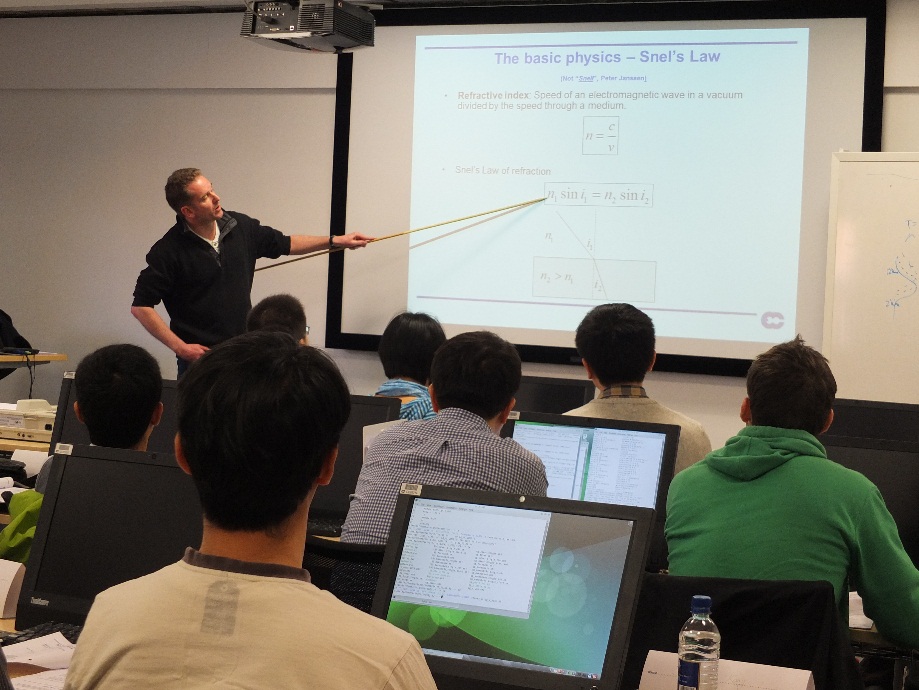

How weather forecasting makes use of the millions of observations that are made each day of the atmosphere, oceans and land was the focus of two training modules held at ECMWF in March 2015. The first was the five-day “Data assimilation” module, while the second was sponsored by EUMETSAT and focussed specifically on the assimilation of satellite data. Both are part of ECMWF's Numerical Weather Prediction (NWP) training course.
In weather forecasting, data assimilation is the process of combining information from numerical models with observations to produce a “best” or optimal estimate of the atmospheric state as the starting point for a forecast. The state is optimal in the sense that background information from the model is combined with observed information – respecting the uncertainty in both.
Through a mixture of lectures and hands-on sessions, both modules gave an overview of the types of observation and how they are used and monitored at ECMWF.
ECMWF’s Numerical Weather Prediction training course is divided into modules covering different aspects of NWP. After data assimilation, the course moves on to consider how we model the small-scale processes important for weather forecasting, such as clouds, soil processes and radiation. This is covered in the “Parametrization of subgrid physical processes” module. “Predictability and ocean-atmosphere ensemble forecasting” looks at how we make probabilistic forecasting systems and how we can develop forecasting systems for longer timescales (monthly and seasonal forecasts). The final module, “Advanced numerical methods for Earth-system modelling”, explores how we can make the forecast models of the future, making the best use of computing resources to produce more accurate global forecasts at higher resolution.
Participants are usually researchers at meteorological services as well as academic institutions and private companies. The training courses have been developed to give a solid education in the main principles of current NWP as well as allowing the exchange of knowledge between ECMWF and the wider research community. Training includes the latest research being carried out at ECMWF and there are many opportunities for participants to discuss what they are working on both with Centre staff and other training course participants.
This year we have approximately 120 participants coming from 24 different countries, including some non-Member States (Brazil, China, Korea, Malaysia, Mexico).
More information
- ECMWF’s Numerical Weather Prediction training course
- ECMWF/EUMETSAT NWP-SAF Satellite data assimilation training module
